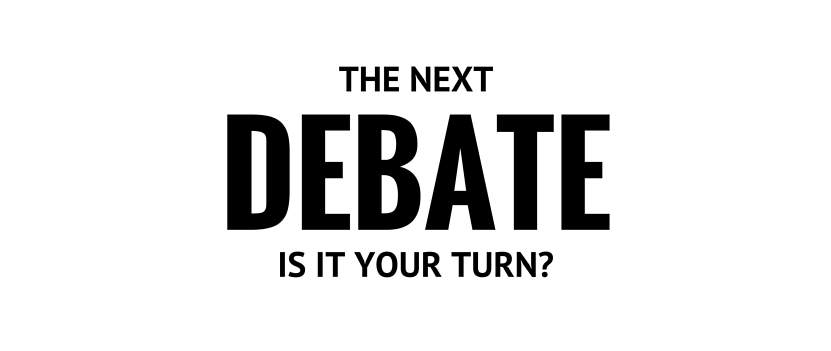Blog
The Next Debate: Is It Your Turn?

October 2, 2015
Presidential primary debates are spurring political discussion nationwide. The first debate on August 6 was watched by 24 million viewers, making it the highest-rated primary debate in TV history. The CNN debate followed closely with 22.9 million viewers, becoming the most watched program in the network’s 25-year history. To put things in perspective, these ratings are larger than the average NFL broadcast of 19 million viewers. At American Majority we spend most of our time training people to run for down-ballot races, many of whom are running for the first time. This includes a mother of four running for county commission, a physician running for state representative, and the small business owners, grandparents, professors, and college students vying for seats on their school boards, town councils, and county boards.
A piece of advice for our state and local candidates? Debate.
While a candidate forum will not garner millions of viewers, remember that you don’t need millions, or even hundreds. Talking face-to-face on important issues with a few key community influencers and concerned voters can go a long way. Here’s how to get started:
1. Raise Visibility: First of all, realize that you don’t have to run in a high profile race for people to become interested. To get them engaged, you simply need to raise the visibility of the race. One of the ways to do this is to provide outreach to various organizations and entities that might have an interest in hosting a debate. A great place to start is with your local newspaper or chamber of commerce. For instance, a local League of Women Voters recently hosted a board of supervisors candidate forum which was attended by over 100 voters. Remember: the more localized the better.
2. Buddy Up: Reach out to other like-minded candidates running for similar positions in your city or county. Organizations will often host a debate for a number of local candidates. For example, if several city council candidates express interest to their local newspaper about hosting a debate, the likelihood of a debate being arranged will significantly improve.
3. Know Your Stuff: Once a debate has been confirmed make certain that you get as much information as you can about the particular debate format, including whether you can receive questions in advance. Prepping with this information will put you in a position to excel during the debate. Think about doing some mock debate sessions with your advisors or key volunteers. Practice. As Michelangelo once said, “If you knew how much work went into it, you wouldn’t call it genius.”
4. Don’t Sweat It: Reactions to the first televised presidential debate changed campaigning forever. The first debate took place in 1960 between Kennedy and Nixon, and throughout the debate, Nixon sweated profusely while Kennedy maintained composure and good posture. Radio listeners thought Nixon came out ahead, however, those watching perceived Kennedy as “more presidential” and thus, the winner. The takeaway: Your body language and physical appearance can enhance your message and give you the ability to connect with your audience. Check out our Public Speaking Guide for more tips!

